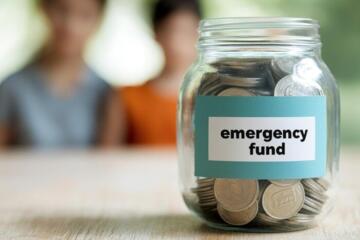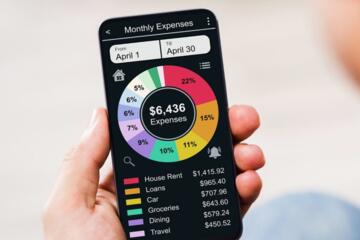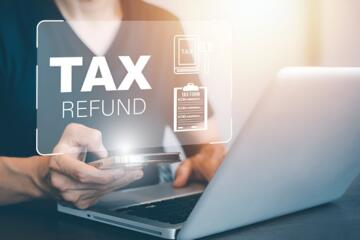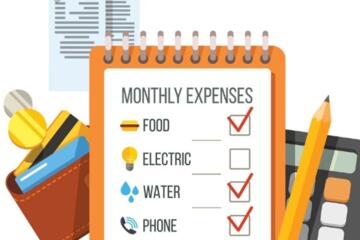Let’s face it — budgeting can feel overwhelming, especially when you’re juggling bills, debt, savings, and unexpected expenses. But knowing where your money goes each month is the first step toward financial freedom.
The problem? Many people think they need expensive tools or financial advisors to get started. The truth is, there are powerful, user-friendly apps available for free that help you track your spending, create budgets, and build better habits — all from your phone.
Below, we’ve rounded up some of the best free budgeting apps that are easy to use, effective, and perfect for anyone looking to manage their money more mindfully.
1. Mint
Best for: All-in-one budgeting and expense tracking
Why it’s great:
Mint is one of the most well-known free budgeting apps — and for good reason. It automatically syncs with your bank accounts, credit cards, and even investments to give you a full picture of your finances in one place.
Key features:
-
Automatic categorization of transactions
-
Customizable budgeting goals
-
Alerts for bills, fees, or unusual spending
-
Credit score monitoring
Pro tip: Use Mint’s weekly summaries to spot spending trends and make adjustments before small leaks sink your budget.
2. Goodbudget
Best for: Envelope-style budgeting
Why it’s great:
If you prefer a more hands-on approach, Goodbudget uses the classic envelope system — digitally. Instead of tracking every transaction, you assign money to virtual “envelopes” (like groceries, rent, entertainment) and spend only from those.
Key features:
-
Simple, manual entry
-
Great for couples or shared budgets
-
Sync across multiple devices
-
Ideal for planning ahead rather than reacting to spending
Pro tip: This app is best if you don’t want to connect your bank — it encourages mindfulness by requiring you to log expenses manually.
3. EveryDollar
Best for: Zero-based budgeting
Why it’s great:
Created by finance expert Dave Ramsey’s team, EveryDollar helps users assign every dollar a job — meaning you plan where 100% of your income goes. The free version is manual (no bank syncing), but it’s excellent for those who want total control.
Key features:
-
Clean, user-friendly interface
-
Goal-setting and tracking
-
Encourages intentional spending
Step-by-step use:
-
Add your income
-
List out all expenses and assign values
-
Track manually to stay accountable
Pro tip: Great for users who follow the “baby steps” or Ramsey-style financial strategies.
4. PocketGuard
Best for: Knowing how much you can spend
Why it’s great:
PocketGuard connects to your accounts and shows you how much you have left to spend after covering bills and savings. Its “In My Pocket” feature gives a quick glance at your true available funds — so you can avoid overspending.
Key features:
-
Bill tracking
-
Automatic categorization
-
Smart savings suggestions
-
Detects recurring subscriptions
Helpful tip: Use PocketGuard to identify and cancel unused subscriptions quietly draining your budget.
5. Spendee
Best for: Visual learners and budgeters who like charts
Why it’s great:
Spendee offers gorgeous, color-coded visuals that make it easier to understand where your money’s going. The free version allows for manual entry or syncing with one bank account.
Key features:
-
Customizable budget categories
-
Easy-to-read graphs and spending summaries
-
Multiple “wallets” for specific goals (vacations, events, etc.)
Pro tip: Use the shared wallet feature if you’re splitting expenses with a partner or roommate.
6. Zeta
Best for: Couples managing money together
Why it’s great:
Zeta is designed for two. Whether you’re married, engaged, or living together, this app helps couples manage joint and individual finances while maintaining transparency.
Key features:
-
Shared and personal accounts
-
Split expenses and track shared bills
-
In-app messaging for money-related conversations
-
Budget planning for shared goals
Quick tip: Even if you're not combining finances, Zeta is great for organizing shared expenses like rent or utilities.
7. YNAB (You Need A Budget) – Free Trial
Best for: Structured, habit-building budgeting
Note: YNAB is not permanently free, but it offers a 34-day free trial and free use for students for one year. It's worth mentioning because many people find it life-changing enough to continue after the trial.
Why it’s great:
YNAB focuses on teaching users to “give every dollar a job.” It’s highly detailed, helps break the paycheck-to-paycheck cycle, and offers educational resources alongside the app.
Pro tip: If you’re a student, sign up with your .edu email for a full free year.
Final Thoughts: The Best Budget Is the One You’ll Actually Use
It doesn’t matter how powerful a tool is if it just sits untouched on your phone. The best budgeting app is the one that fits your lifestyle, motivates you to stay consistent, and helps you build better money habits over time.
Takeaway: Start by trying one or two apps from this list. Explore the features, play around with the layouts, and find what works for you. With the right tool and a little consistency, you can stop stressing about money and start feeling more in control — without spending a cent.







